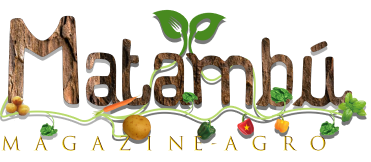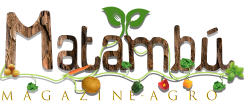[ad_1]
Agriculture is the largest sector of the Nigerian financial system using two-thirds of the total labour drive. One would count on that this sector would generate loads of income for Nigeria however manufacturing hurdles alongside the worth chain are considerably limiting the efficiency of the sector. This has resulted in meals safety challenges throughout the nation. These questions and challenges are ones that we now have been strategically positioned to deal with seeing as we now have over the previous couple of years innovated alongside farmer challenges to assist farmers drive elevated profitability for his or her agricultural actions, higher livelihoods for themselves and supporting households to higher sustenance.
Our huge query each time is one of “How do we innovate around more farmer challenges to improve their lives and drive increased value across the agricultural value chain”. This has been the coronary heart of Thrive Agric. But what does scale imply for us? How will we be certain that we’re constantly doing extra for companions? It is by leveraging relationships with companions who share our imaginative and prescient to create an economically resilient Africa by Agriculture.
Check out our partnership with Africa’s Largest Phosphate Fertilizer Brand “OCP Africa” to Empower Local Farmers
The Central Bank of Nigeria has been very intentional in its resolve to support local farmers. These efforts is in Nigeria’s bid to encouraging funding in agriculture to assist diversify the financial system away from oil, which accounts for greater than 90% of export revenues. The central financial institution targets rising output of main meals and money crops together with cotton, rice, tomato, cassava, cocoa and maize.
The aim of that is to create a linkage between firms like Thrive Agric concerned in supporting smallholder farmers to produce required key agricultural commodities, Maize on this case owing to a current scarcity in the manufacturing numbers to attain self sufficiency and scale back the nation’s reliance on imports. The programme thrust is the provision of farm inputs to small holder farmers to increase manufacturing of Maize, stabilize inputs provide to agro processors and deal with the nation’s unfavorable stability of funds on meals. This financially empowers smallholder farmers and engages them productively to increase agricultural manufacturing and non-oil exports in the face of unpredictable crude oil costs and its resultant impact on the income profile of Nigeria.
The broad goal of this partnership is to create financial alternative for smallholder farmers by leveraging the deepened constructions that Thrive Agric has in it’s operations to seize higher worth for the farmers with a view to rising agricultural output and considerably bettering capability utilization of processors.

Other targets for this partnership consists of: Increase banks’ financing to the agricultural sector, scale back agricultural commodity importation and preserve exterior reserves, Increase capability utilization of agricultural companies, Create new technology of farmers/entrepreneurs and employment, Deepen monetary inclusion of native Nigerian Farmers by our elevated networks to present monetary companies to farmers and the farmer communities we function in, Reduce the stage of poverty amongst smallholder farmers, Assist rural smallholder farmers to develop from subsistence to business manufacturing ranges.
Read our detailed process on How we make agriculture profitable and empower local Nigerian farmers.

To put the challenges Nigeria is dealing with in perspective, in the previous 20 years, value-added per capita in agriculture has risen by lower than 1 % yearly. This merely implies that in the previous 20 years, the contribution of Agriculture to the livelihoods of a median Nigerian is subsequent to nothing.
FAO estimates that Nigeria has lost $10 billion in annual export opportunity cocoa, palm oil, maize, groundnut, and cotton alone because of a continuous decline in the production of those commodities. While the meals manufacturing in the nation is declining, the inhabitants development will not be slowing down, to maintain itself over the years, Nigeria has had to depend on meals importation.
To make issues worse, the results of the pandemic prompted disruption in meals safety and it raised loads of questions on meals insecurity not solely in Africa however the world. More than ever, initiatives like these are wanted in the nation proper now seeing how the pandemic is affecting the Agriculture worth chain and meals techniques in Nigeria.

We are enthusiastic about this partnership with the Central Bank of Nigeria. Partnerships are at the centre of all the things we do at #ThriveAgric, and leveraging them to enhance the lives of our farmers is why we do what we do, particularly partnerships which are all about creating extra worth and constructing higher livelihoods for native #farmers throughout Nigeria.
The aim of this initiative is to support over 25,000 farmers and domesticate over 25000 hectares of maize farmland throughout Nigeria and the finish aim is to produce over 20 million metric tonnes of maize grains to increase maize manufacturing in Nigeria.
Nothing offers us a lot pleasure to know that this won’t solely create higher livelihoods for native farmers throughout Nigeria however it’s going to additionally bridge the demand hole for maize and maize merchandise in client markets throughout Nigeria.

So, how will we make this occur? For a number of years now, we’ve been engaged on a software program referred to as the Thrive AOS, that permits us to attain extra farmers throughout Nigeria. Our plan is to attain over 1million farmers over the subsequent few years and we’d like know-how to scale to that stage. The know-how permits us to maintain an in depth eye on the farmers and be certain that they’re on monitor with the projected yield, and usually have the ability to use know-how to automate processes in a approach to make our operations and that of the farmers clear to stakeholders throughout the worth chain.
We know that this partnership will go a good distance in creating higher livelihoods for farmers and likewise transfer Nigeria a step nearer to meals safety. We are all the time on the search for partnerships like these which are tailor-made to making certain meals safety and bettering the livelihood of farmers.
[ad_2]
Source link










